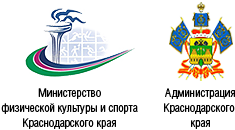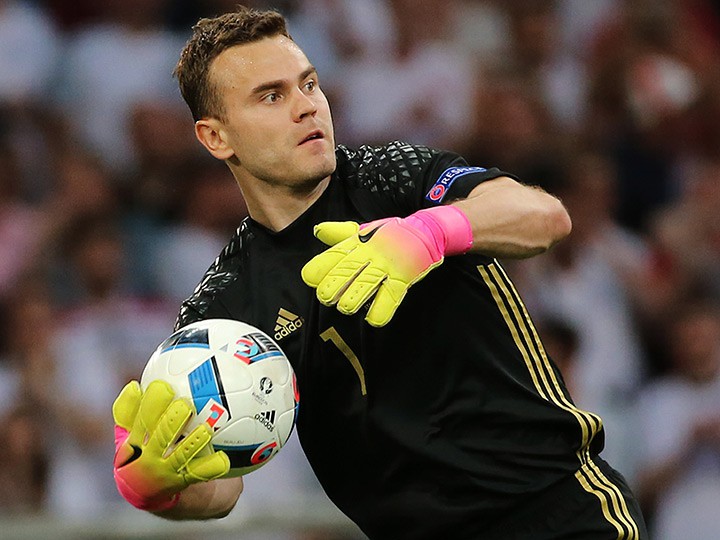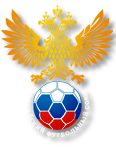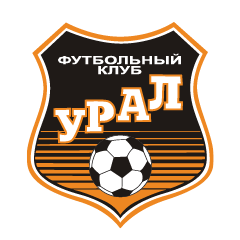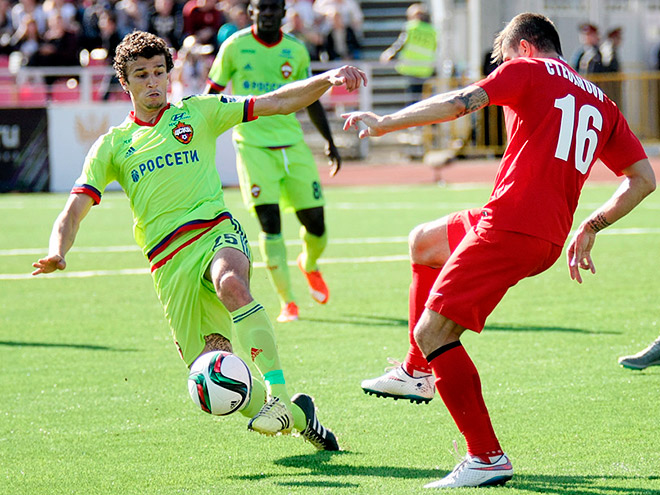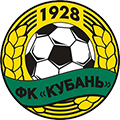Сборная России по пляжному футболу. Сборная россии по футболу пляжному википедия
Сборная России по пляжному футболу — Википедия
Материал из Википедии — свободной энциклопедии
Сборная России по пляжному футболу — национальная команда, которая представляет Россию на международных состязаниях по пляжному футболу. Чемпион мира 2011 и 2013 годов. Команду возглавляет Михаил Лихачёв. Является одной из сильнейших сборных мира.
История
В 2007 году сборная России в первом же своем выступлении в европейской лиге пляжного футбола (EBSL) взяла бронзу и тем самым заработала себе путевку на чемпионат мира 2007 года. На дебютном чемпионате мира сборная России заняла 3-е место в группе и 9-е итоговое место. В 2008 году сборная России снова завоевала бронзу в европейской лиге (EBSL), а на чемпионате мира заняла 6 место. Кроме того, на чемпионате мира сборная России также получила приз «Fair Play» за честную игру.
В 2010 году сборная России по пляжному футболу в финальном матче Кубка Европы обыграла команду Португалии со счетом 6:4 и впервые в своей истории стала обладателем Кубка. Обыграв в четвертьфинале отборочного турнира на чемпионат мира команду Испании со счётом 8:4, команда заработала путёвку на чемпионат мира 2011 года. Победив 11 сентября в финальном матче команду Бразилии со счетом 12:8, впервые в своей истории стала чемпионом мира.[2]
В феврале 2012 года во второй раз в своей истории выиграла Кубок Европы. Турнир проходил 17-18 февраля в Москве.
На чемпионате мира 2013 года, проходившем на Таити, игроки сборной России уверенно дошли до финала, в котором 29 сентября разгромили сборную Испании со счётом 5:1, став двукратными обладателями звания чемпионов мира.
В 2015 году россияне завоевали золотые медали первых в истории Европейских игр, 28 июня обыграв в финале итальянцев - 3:2. 19 июля на чемпионате мира в Португалии сборная России завоевала бронзу, в матче за третье место вновь обыграв Италию - 5:2. Таким образом, российские пляжники на третьем чемпионате мира подряд не остались без медалей.
Видео по теме
Состав
Действительно на ноябрь 2017[3]
Примечание: Флаги указываются, так как игрок может иметь более одного гражданства по правилам ФИФА.
Тренер:  Михаил Лихачёв
Михаил Лихачёв
Достижения
Чемпионат мираЕвролигаКубок ЕвропыОтборочный турнир чемпионата мира (УЕФА) (Чемпионат Европы)-
 Победитель : 2014 (Езоло)
Победитель : 2014 (Езоло) -
 Финалист 2 раза: 2009, 2012
Финалист 2 раза: 2009, 2012 -
 Бронзовый призёр 2 раза: 2008, 2010
Бронзовый призёр 2 раза: 2008, 2010
-
 Победитель: 2015
Победитель: 2015
Мундиалито по пляжному футболу
![]() Бронзовый призёр: 2017
Бронзовый призёр: 2017
Примечания
Ссылки
wikipedia.green
Сборная России по пляжному футболу — Википедия (с комментариями)
Материал из Википедии — свободной энциклопедии
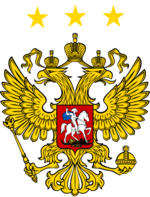
Сборная России по пляжному футболу — национальная команда, которая представляет Россию на международных состязаниях по пляжному футболу. Чемпион мира 2011 и 2013 годов. Команду возглавляет Михаил Лихачёв. Является одной из сильнейших сборных мира.
История
В 2007 году сборная России в первом же своем выступлении в европейской лиге пляжного футбола (EBSL) взяла бронзу и тем самым заработала себе путевку на чемпионат мира 2007 года. На дебютном чемпионате мира сборная России заняла 3-е место в группе и 9-е итоговое место. В 2008 году сборная России снова завоевала бронзу в европейской лиге (EBSL), а на чемпионате мира заняла 6 место. Кроме того, на чемпионате мира сборная России также получила приз «Fair Play» за честную игру.
В 2010 году сборная России по пляжному футболу в финальном матче Кубка Европы обыграла команду Португалии со счетом 6:4 и впервые в своей истории стала обладателем Кубка. Обыграв в четвертьфинале отборочного турнира на чемпионат мира команду Испании со счётом 8:4, команда заработала путёвку на чемпионат мира 2011 года. Победив 11 сентября в финальном матче команду Бразилии со счетом 12:8, впервые в своей истории стала чемпионом мира.[2]
В феврале 2012 года во второй раз в своей истории выиграла Кубок Европы. Турнир проходил 17-18 февраля в Москве.
На чемпионате мира 2013 года, проходившем на Таити, игроки сборной России уверенно дошли до финала, в котором 29 сентября разгромили сборную Испании со счётом 5:1, став двукратными обладателями звания чемпионов мира.
В 2015 году россияне завоевали золотые медали первых в истории Европейских игр, 28 июня обыграв в финале итальянцев - 3:2. 19 июля на чемпионате мира в Португалии сборная России завоевала бронзу, в матче за третье место вновь обыграв Италию - 5:2. Таким образом, наши пляжники на третьем чемпионате мира подряд не остались без медалей.
Состав
Действительно на июль 2015[3]
Примечание: Флаги указываются, так как игрок может иметь более одного гражданства по правилам ФИФА.
Тренер: Михаил Лихачёв
Достижения
Чемпионат мираЕвролигаКубок ЕвропыОтборочный турнир чемпионата мира (УЕФА) (Чемпионат Европы)-
Победитель : 2014 (Езоло)
-
Финалист 2 раза: 2009, 2012
-
Бронзовый призёр 2 раза: 2008, 2010
-
Победитель: 2015
Напишите отзыв о статье "Сборная России по пляжному футболу"
Примечания
- ↑ [www.championat.com/other/_beach/article-108027-itogi-2011-pljazhnyj-futbol.html Итоги-2011. Пляжный футбол]
- ↑ [www.fifa.com/beachsoccerworldcup/matches/round=258278/match=300166605/index.html Russia dethrone Brazil as beach kings]
- ↑ [www.fifa.com/beachsoccerworldcup/teams/team=1903183/players.html FIFA Beach Soccer World Cup: Russia – Players]. FIFA.com. Проверено 12 июля 2015.
Ссылки
- [www.fifa.com/beachsoccerworldcup/teams/team=1903183/index.html Профайл сборной на официальном сайте ФИФА]
- [beachsoccerrussia.ru/russian-team Профайл сборной на сайте Beach Soccer Russia]
- [www.beachsoccer.com/teams/Russia Профайл сборной на сайте Beach Soccer Worldwide]
Отрывок, характеризующий Сборная России по пляжному футболу
Но что такое случай? Что такое гений? Слова случай и гений не обозначают ничего действительно существующего и потому не могут быть определены. Слова эти только обозначают известную степень понимания явлений. Я не знаю, почему происходит такое то явление; думаю, что не могу знать; потому не хочу знать и говорю: случай. Я вижу силу, производящую несоразмерное с общечеловеческими свойствами действие; не понимаю, почему это происходит, и говорю: гений. Для стада баранов тот баран, который каждый вечер отгоняется овчаром в особый денник к корму и становится вдвое толще других, должен казаться гением. И то обстоятельство, что каждый вечер именно этот самый баран попадает не в общую овчарню, а в особый денник к овсу, и что этот, именно этот самый баран, облитый жиром, убивается на мясо, должно представляться поразительным соединением гениальности с целым рядом необычайных случайностей. Но баранам стоит только перестать думать, что все, что делается с ними, происходит только для достижения их бараньих целей; стоит допустить, что происходящие с ними события могут иметь и непонятные для них цели, – и они тотчас же увидят единство, последовательность в том, что происходит с откармливаемым бараном. Ежели они и не будут знать, для какой цели он откармливался, то, по крайней мере, они будут знать, что все случившееся с бараном случилось не нечаянно, и им уже не будет нужды в понятии ни о случае, ни о гении. Только отрешившись от знаний близкой, понятной цели и признав, что конечная цель нам недоступна, мы увидим последовательность и целесообразность в жизни исторических лиц; нам откроется причина того несоразмерного с общечеловеческими свойствами действия, которое они производят, и не нужны будут нам слова случай и гений. Стоит только признать, что цель волнений европейских народов нам неизвестна, а известны только факты, состоящие в убийствах, сначала во Франции, потом в Италии, в Африке, в Пруссии, в Австрии, в Испании, в России, и что движения с запада на восток и с востока на запад составляют сущность и цель этих событий, и нам не только не нужно будет видеть исключительность и гениальность в характерах Наполеона и Александра, но нельзя будет представить себе эти лица иначе, как такими же людьми, как и все остальные; и не только не нужно будет объяснять случайностию тех мелких событий, которые сделали этих людей тем, чем они были, но будет ясно, что все эти мелкие события были необходимы. Отрешившись от знания конечной цели, мы ясно поймем, что точно так же, как ни к одному растению нельзя придумать других, более соответственных ему, цвета и семени, чем те, которые оно производит, точно так же невозможно придумать других двух людей, со всем их прошедшим, которое соответствовало бы до такой степени, до таких мельчайших подробностей тому назначению, которое им предлежало исполнить.Основной, существенный смысл европейских событий начала нынешнего столетия есть воинственное движение масс европейских народов с запада на восток и потом с востока на запад. Первым зачинщиком этого движения было движение с запада на восток. Для того чтобы народы запада могли совершить то воинственное движение до Москвы, которое они совершили, необходимо было: 1) чтобы они сложились в воинственную группу такой величины, которая была бы в состоянии вынести столкновение с воинственной группой востока; 2) чтобы они отрешились от всех установившихся преданий и привычек и 3) чтобы, совершая свое воинственное движение, они имели во главе своей человека, который, и для себя и для них, мог бы оправдывать имеющие совершиться обманы, грабежи и убийства, которые сопутствовали этому движению. И начиная с французской революции разрушается старая, недостаточно великая группа; уничтожаются старые привычки и предания; вырабатываются, шаг за шагом, группа новых размеров, новые привычки и предания, и приготовляется тот человек, который должен стоять во главе будущего движения и нести на себе всю ответственность имеющего совершиться. Человек без убеждений, без привычек, без преданий, без имени, даже не француз, самыми, кажется, странными случайностями продвигается между всеми волнующими Францию партиями и, не приставая ни к одной из них, выносится на заметное место. Невежество сотоварищей, слабость и ничтожество противников, искренность лжи и блестящая и самоуверенная ограниченность этого человека выдвигают его во главу армии. Блестящий состав солдат итальянской армии, нежелание драться противников, ребяческая дерзость и самоуверенность приобретают ему военную славу. Бесчисленное количество так называемых случайностей сопутствует ему везде. Немилость, в которую он впадает у правителей Франции, служит ему в пользу. Попытки его изменить предназначенный ему путь не удаются: его не принимают на службу в Россию, и не удается ему определение в Турцию. Во время войн в Италии он несколько раз находится на краю гибели и всякий раз спасается неожиданным образом. Русские войска, те самые, которые могут разрушить его славу, по разным дипломатическим соображениям, не вступают в Европу до тех пор, пока он там. По возвращении из Италии он находит правительство в Париже в том процессе разложения, в котором люди, попадающие в это правительство, неизбежно стираются и уничтожаются. И сам собой для него является выход из этого опасного положения, состоящий в бессмысленной, беспричинной экспедиции в Африку. Опять те же так называемые случайности сопутствуют ему. Неприступная Мальта сдается без выстрела; самые неосторожные распоряжения увенчиваются успехом. Неприятельский флот, который не пропустит после ни одной лодки, пропускает целую армию. В Африке над безоружными почти жителями совершается целый ряд злодеяний. И люди, совершающие злодеяния эти, и в особенности их руководитель, уверяют себя, что это прекрасно, что это слава, что это похоже на Кесаря и Александра Македонского и что это хорошо. Тот идеал славы и величия, состоящий в том, чтобы не только ничего не считать для себя дурным, но гордиться всяким своим преступлением, приписывая ему непонятное сверхъестественное значение, – этот идеал, долженствующий руководить этим человеком и связанными с ним людьми, на просторе вырабатывается в Африке. Все, что он ни делает, удается ему. Чума не пристает к нему. Жестокость убийства пленных не ставится ему в вину. Ребячески неосторожный, беспричинный и неблагородный отъезд его из Африки, от товарищей в беде, ставится ему в заслугу, и опять неприятельский флот два раза упускает его. В то время как он, уже совершенно одурманенный совершенными им счастливыми преступлениями, готовый для своей роли, без всякой цели приезжает в Париж, то разложение республиканского правительства, которое могло погубить его год тому назад, теперь дошло до крайней степени, и присутствие его, свежего от партий человека, теперь только может возвысить его. Он не имеет никакого плана; он всего боится; но партии ухватываются за него и требуют его участия. Он один, с своим выработанным в Италии и Египте идеалом славы и величия, с своим безумием самообожания, с своею дерзостью преступлений, с своею искренностью лжи, – он один может оправдать то, что имеет совершиться. Он нужен для того места, которое ожидает его, и потому, почти независимо от его воли и несмотря на его нерешительность, на отсутствие плана, на все ошибки, которые он делает, он втягивается в заговор, имеющий целью овладение властью, и заговор увенчивается успехом. Его вталкивают в заседание правителей. Испуганный, он хочет бежать, считая себя погибшим; притворяется, что падает в обморок; говорит бессмысленные вещи, которые должны бы погубить его. Но правители Франции, прежде сметливые и гордые, теперь, чувствуя, что роль их сыграна, смущены еще более, чем он, говорят не те слова, которые им нужно бы было говорить, для того чтоб удержать власть и погубить его. Случайность, миллионы случайностей дают ему власть, и все люди, как бы сговорившись, содействуют утверждению этой власти. Случайности делают характеры тогдашних правителей Франции, подчиняющимися ему; случайности делают характер Павла I, признающего его власть; случайность делает против него заговор, не только не вредящий ему, но утверждающий его власть. Случайность посылает ему в руки Энгиенского и нечаянно заставляет его убить, тем самым, сильнее всех других средств, убеждая толпу, что он имеет право, так как он имеет силу. Случайность делает то, что он напрягает все силы на экспедицию в Англию, которая, очевидно, погубила бы его, и никогда не исполняет этого намерения, а нечаянно нападает на Мака с австрийцами, которые сдаются без сражения. Случайность и гениальность дают ему победу под Аустерлицем, и случайно все люди, не только французы, но и вся Европа, за исключением Англии, которая и не примет участия в имеющих совершиться событиях, все люди, несмотря на прежний ужас и отвращение к его преступлениям, теперь признают за ним его власть, название, которое он себе дал, и его идеал величия и славы, который кажется всем чем то прекрасным и разумным. Как бы примериваясь и приготовляясь к предстоящему движению, силы запада несколько раз в 1805 м, 6 м, 7 м, 9 м году стремятся на восток, крепчая и нарастая. В 1811 м году группа людей, сложившаяся во Франции, сливается в одну огромную группу с серединными народами. Вместе с увеличивающейся группой людей дальше развивается сила оправдания человека, стоящего во главе движения. В десятилетний приготовительный период времени, предшествующий большому движению, человек этот сводится со всеми коронованными лицами Европы. Разоблаченные владыки мира не могут противопоставить наполеоновскому идеалу славы и величия, не имеющего смысла, никакого разумного идеала. Один перед другим, они стремятся показать ему свое ничтожество. Король прусский посылает свою жену заискивать милости великого человека; император Австрии считает за милость то, что человек этот принимает в свое ложе дочь кесарей; папа, блюститель святыни народов, служит своей религией возвышению великого человека. Не столько сам Наполеон приготовляет себя для исполнения своей роли, сколько все окружающее готовит его к принятию на себя всей ответственности того, что совершается и имеет совершиться. Нет поступка, нет злодеяния или мелочного обмана, который бы он совершил и который тотчас же в устах его окружающих не отразился бы в форме великого деяния. Лучший праздник, который могут придумать для него германцы, – это празднование Иены и Ауерштета. Не только он велик, но велики его предки, его братья, его пасынки, зятья. Все совершается для того, чтобы лишить его последней силы разума и приготовить к его страшной роли. И когда он готов, готовы и силы.
wiki-org.ru
Сборная России по пляжному футболу
 | |
| Прозвища | Красная песочная машина[1] |
| Конфедерация | УЕФА |
| Федерация | Федерация пляжного футбола России |
| Гл. тренер |  Михаил Лихачёв Михаил Лихачёв |
| Капитан | Илья Леонов |
| Первая игра{{{ПерваяИгра}}} | |
| Самая крупная победа{{{Победа}}} | |
| Самое крупное поражение{{{Поражение}}} | |
Сборная России по пляжному футболу — национальная команда, которая представляет Россию на международных состязаниях.
Чемпион мира 2011 года. Команду возглавляет Михаил Лихачёв. Является одной из сильнейших сборных мира.История
В 2007 году сборная России в первом же своем выступлении в европейской лиге пляжного футбола (EBSL) взяла бронзу и тем самым заработала себе путевку на чемпионат мира 2007 года. На дебютном чемпионате мира сборная России заняла 3-е место в группе и 9-е итоговое место. В 2008 году сборная России снова завоевала бронзу в европейской лиге (EBSL), а на чемпионате мира заняла 6 место. Кроме того, на чемпионате мира сборная России также получила приз «Fair Play» за честную игру.
В 2010 году сборная России по пляжному футболу в финальном матче Кубка Европы обыграла команду Португалии со счетом 6:4 и впервые в своей истории стала обладателем Кубка. Обыграв в четвертьфинале отборочного турнира на чемпионат мира команду Испании со счётом 8:4, команда заработала путёвку на чемпионат мира 2011 года. Победив 11 сентября в финальном матче команду Бразилии со счетом 12:8, впервые в своей истории стала чемпионом мира.[2]
В февраля 2012 года во второй раз в своей истории выиграла Кубок Европы. Турнир проходил 17-18 февраля в Москве.
Состав
Достижения
Чемпионат мира Евролига Обладатель 2 раза: 2009, 2011
Обладатель 2 раза: 2009, 2011 Финалист: 2012
Финалист: 2012 Бронзовый призёр 3 раза: 2007, 2008, 2010
Бронзовый призёр 3 раза: 2007, 2008, 2010
 Финалист 2 раза: 2009, 2013
Финалист 2 раза: 2009, 2013 Бронзовый призёр 2 раза: 2008, 2010
Бронзовый призёр 2 раза: 2008, 2010
 Победитель 2 раза: 2011, 2012
Победитель 2 раза: 2011, 2012
Примечания
Ссылки
| Австрия | Азербайджан | Англия | Андорра | Беларусь | Бельгия | Болгария | Венгрия | Германия | Греция | Грузия | Дания | Израиль | Испания | Италия | Казахстан | Латвия | Литва | Нидерланды | Норвегия | Польша | Португалия | Россия | Румыния | Словакия | Турция | Украина | Франция | Чехия | Швейцария | Эстония |
| Австралия | Бахрейн | Индия | Иран | Китай | Малайзия | ОАЭ | Таиланд | Узбекистан | Филиппины | Южная Корея | Япония |
| Египет | Кабо-Верде | Камерун | Кот д'Ивуар | Ливия | Маврикий | Мадагаскар | Марокко | Мозамбик | Нигерия | Сенегал | ЮАР |
| Багамские острова | Гватемала | Канада | Коста-Рика | Мексика | Сальвадор | США | Ямайка |
| Аргентина | Бразилия | Венесуэла | Парагвай | Перу | Уругвай | Чили | Эквадор |
| Вануату | Новая Зеландия | Соломоновы острова | Таити | Фиджи |
dal.academic.ru
Сборная России по пляжному футболу Вики
 Эмблема на форме с двумя звёздами, каждая из которых означает победу в Чемпионатах мира: 2011 и 2013. В основе эмблемы — герб России
Эмблема на форме с двумя звёздами, каждая из которых означает победу в Чемпионатах мира: 2011 и 2013. В основе эмблемы — герб России Сборная России по пляжному футболу — национальная команда, которая представляет Россию на международных состязаниях по пляжному футболу. Чемпион мира 2011 и 2013 годов. Команду возглавляет Михаил Лихачёв. Является одной из сильнейших сборных мира.
История[ | код]
В 2007 году сборная России в первом же своем выступлении в европейской лиге пляжного футбола (EBSL) взяла бронзу и тем самым заработала себе путевку на чемпионат мира 2007 года. На дебютном чемпионате мира сборная России заняла 3-е место в группе и 9-е итоговое место. В 2008 году сборная России снова завоевала бронзу в европейской лиге (EBSL), а на чемпионате мира заняла 6 место. Кроме того, на чемпионате мира сборная России также получила приз «Fair Play» за честную игру.
В 2010 году сборная России по пляжному футболу в финальном матче Кубка Европы обыграла команду Португалии со счетом 6:4 и впервые в своей истории стала обладателем Кубка. Обыграв в четвертьфинале отборочного турнира на чемпионат мира команду Испании со счётом 8:4, команда заработала путёвку на чемпионат мира 2011 года. Победив 11 сентября в финальном матче команду Бразилии со счетом 12:8, впервые в своей истории стала чемпионом мира.[2]
В феврале 2012 года во второй раз в своей истории выиграла Кубок Европы. Турнир проходил 17-18 февраля в Москве.
На чемпионате мира 2013 года, проходившем на Таити, игроки сборной России уверенно дошли до финала, в котором 29 сентября разгромили сборную Испании со счётом 5:1, став двукратными обладателями звания чемпионов мира.
В 2015 году россияне завоевали золотые медали первых в истории Европейских игр, 28 июня обыграв в финале итальянцев - 3:2. 19 июля на чемпионате мира в Португалии сборная России завоевала бронзу, в матче за третье место вновь обыграв Италию - 5:2. Таким образом, российские пляжники на третьем чемпионате мира подряд не остались без медалей.
Состав[ | код]
Действительно на ноябрь 2017[3]
Примечание: Флаги указываются, так как игрок может иметь более одного гражданства по правилам ФИФА.
Тренер:  Михаил Лихачёв
Михаил Лихачёв
Достижения[ | код]
Чемпионат мираЕвролигаКубок ЕвропыОтборочный турнир чемпионата мира (УЕФА) (Чемпионат Европы) Победитель : 2014 (Езоло)
Победитель : 2014 (Езоло) Финалист 2 раза: 2009, 2012
Финалист 2 раза: 2009, 2012 Бронзовый призёр 2 раза: 2008, 2010
Бронзовый призёр 2 раза: 2008, 2010
 Победитель: 2015
Победитель: 2015
Мундиалито по пляжному футболу
![]() Бронзовый призёр: 2017
Бронзовый призёр: 2017
Примечания[ | код]
Ссылки[ | код]
ru.wikibedia.ru
Сборная России по пляжному футболу
1. УЕФА – The Union of European Football Associations is the administrative body for association football in Europe, although several member states are primarily or entirely located in Asia. It is one of six continental confederations of world footballs governing body FIFA, UEFA consists of 55 national association members. Until 1959 the main headquarters were located in Paris, and later in Bern, in 1995, UEFA headquarters were transferred to Nyon, Switzerland. Henri Delaunay was the first general secretary and Ebbe Schwartz the first president, UEFA was founded on 15 June 1954 in Basel, Switzerland after consultation between the Italian, French, and Belgian associations. The European football union began with 25 members, that number doubled by the early 1990s, UEFA membership coincides for the most part with recognition as a sovereign country in Europe, although there are some exceptions. Some UEFA members are not sovereign states, but form part of a recognized sovereign state in the context of international law. Some UEFA members are transcontinental states, countries which had been members of the Asian Football Confederation were also admitted to the European football association, particularly Israel and Kazakhstan. Additionally some UEFA member associations allow teams from outside their associations main territory to take part in their domestic competition, saarland Football Union 1954–1956 German football association of the German Democratic Republic 1954–1990 Football Federation of the Soviet Union 1954–1991, in 1992 became Russian Football Union. The newly independent 14 Soviet Republics created their own football associations, Football Association of Yugoslavia 1954–1992, became Football Association of Serbia and Montenegro. Bosnia and Herzegovina, Croatia, Macedonia and Slovenia became independent, Football Association of Serbia and Montenegro 1992–2006, became Football Association of Serbia. Montenegro, which became independent, created its own football association, the main competition for mens national teams is the UEFA European Football Championship, started in 1958, with the first finals in 1960, and known as the European Nations Cup until 1964. It is also called UEFA or the EURO, UEFA also runs national competitions at Under-21, Under-19 and Under-17 levels. For womens national teams, UEFA operates the UEFA Womens Championship for senior sides as well as Womens Under-19. UEFA also organized the UEFA-CAF Meridian Cup with CAF for youth teams in an effort to boost youth football, UEFA launched the UEFA Regions Cup, for semi-professional teams representing their local region, in 1999. In futsal there is the UEFA Futsal Championship and UEFA Futsal Under-21 Championship, the Italian, German, Spanish and French mens national teams are the sole teams to have won the European football championship in all categories. A second, lower-ranked competition is the UEFA Europa League and this competition, for national knockout cup winners and high-placed league teams, was launched by UEFA in 1971 as a successor of both the former UEFA Cup and the Inter-Cities Fairs Cup. A third competition, the UEFA Cup Winners Cup, which had started in 1960, was absorbed into the UEFA Cup in 1999, in womens football UEFA also conducts the UEFA Womens Champions League for club teams. The competition was first held in 2001, and known as the UEFA Womens Cup until 2009, the UEFA Super Cup pits the winners of the Champions League against the winners of the Europa League, and came into being in 1973
2. Чемпионат мира по пляжному футболу – The FIFA Beach Soccer World Cup is an international beach soccer competition contested by the mens national teams of the member associations of FIFA, the sports global governing body. The tournament was established in 1995 as the Beach Soccer World Championship, taking place every year for the decade under the supervision of Beach Soccer Worldwide. Since 2009, the tournament has taken every two years to allow continental tournaments to flourish without the burden of the World Cup qualifiers crowding the schedule every 12 months. The first edition held outside Brazil was in 2008 in Marseille, the current tournament format lasts over 10 days and involves 16 teams competing initially in four groups of four teams. The group winners and runners-up advance to a series of stages until the champion is crowned. The losing semi-finalists play each other in a match to determine the third. The most recent edition was held in Espinho, Portugal, eight teams were selected to take part, without going through a qualification process. However Brazil, the hosts, dominated and easily won the cup without losing a game, the tournament was successful and BSWW announced that the competition would take place every year. By 1997, more teams had already stated their interest in participating, Brazil continued to dominate, despite this change. Immediately, BSWW extended to 12 teams for 1999, spreading their selection across five continents, however, with all these changes it still took until the 2001 World Cup for Brazil to lose the title after winning the competition six years on the run since the establishment. It was Portugal who won the tournament, with Brazil finishing in a fourth place. With this change of champions, more countries thought there was a chance for themselves to win the tournament, not surprisingly, Brazil reclaimed their title in 2002, when BSWW reduced the number of contestants back to eight. The last Beach Soccer World Championship to be organised purely by BSWW was in 2004 when twelve teams played, in 2005, FIFA paired up with BSWW to co-organise the World Cup, although FIFA seem to have the most control. They kept the tradition of holding the World Cup in Rio de Janeiro and continued to allow 12 teams to participate and it was Eric Cantonas France that won the competition, after beating Portugal on penalties in the final. The tournament was deemed a success and therefore FIFA took advantage. For the 2006 competition and beyond, FIFA decided to standardise the participants to 16 countries and it was then that the FIFA Beach Soccer World Cup Qualifiers were also established, that would take place throughout the year. Again this decision was a one and more countries became interested in a now standard FIFA competition. Since the World Cup had become a worldwide, FIFA decided to have a change of venue
3. Чемпионат мира по пляжному футболу 2011 – The 2011 FIFA Beach Soccer World Cup was the sixth edition of the FIFA Beach Soccer World Cup, governed by FIFA. Previous editions before 2005 were not governed by FIFA and were held under the title Beach Soccer World Championships, overall this was the 16th edition of the World Cup since its establishment in 1995. However this was the first tournament to take place under the new two year basis, now the FIFA Beach Soccer World Cup takes place every two years. The tournament was confirmed in March 2010, Brazil were the defending champions, after winning their fourth FIFA Beach Soccer World Cup title in 2009. The tournament was won by Russia, winning their first title in their first final after beating Brazil, the African qualifiers took place between June 15 and June 19,2011, in Casablanca, Morocco, for the first time. The competition took place between nine teams, the number of teams who competed in the previous championship. Not surprisingly, Senegal and Nigeria were the eventual qualifying nations, after beating Egypt, Senegal were the winners of the competition, beating Nigeria 7-4 in the final. The Asian qualifiers took place in Muscat, Oman, for the first time, Beach Soccer Worldwide and FIFA decided on holding the tournament there, due to the success of the 2010 Asian Beach Games, also held there. A record eleven teams participated, an increase on the record of seven teams in 2009. Japan clinched their second championship title, after beating hosts Oman in the final who will play at the World Cup for the first time. The European qualifiers took place in Bibione, Italy from 11–18 July 2010, the surprising winners of the qualifiers, Ukraine, qualified along with runners-up Portugal, third-place Russia and fourth-place Switzerland. 2005 World Cup winners France have also failed to qualify, making it two World Cups in a row France have failed to qualify for. However, only the finalists could qualify for the World Cup, in the end, it was El Salvador and Mexico who qualified, after tense 3-3 and 1-1 draws against Costa Rica and the United States respectively. Mexico were favourites from CONCACAF in Ravenna after beating El Salvador in the final of the qualifiers, the United States finished third after beating Costa Rica in the third place play off. The OFC qualifiers took place from 23–26 February 2011 in Papeete, Tahiti and this was the third time the island hosted the qualifiers following 2006 and 2009, but the first in Papeete, as it had been held in Moorea previously. Once again, Fiji, the Solomon Islands, and Tahiti competed however Vanuatu were forced to withdraw due to being stranded at their airport because of a cyclone that had passed through the area. The CONMEBOL qualifiers were originally scheduled to take place from 7 –14 May 2011, in Rio de Janeiro, however the tournament was rescheduled and took place from 31 July to 7 August. For the fourth tournament, Brazil won the championship, after beating Argentina in the final
4. Чемпионат мира по пляжному футболу 2013 – The 2013 FIFA Beach Soccer World Cup was the seventh edition of the FIFA Beach Soccer World Cup, governed by FIFA. It took place from 18–28 September 2013 at Tahua Toata Stadium in Papeete, Tahiti, overall this was the 17th edition of the World Cup since its establishment in 1995. This was the tournament to take place since the establishment of a longer two-year cycle of tournaments. The tournament was confirmed in March 2010, the CAF qualifiers took place from 22–26 May 2013 in El Jadida, Morocco to determine the two teams for the finals. The qualifiers were originally scheduled for 10–14 April, and then 29 May-2 June 2013 in Casablanca, Senegal and Côte dIvoire qualified for the two available spots. The AFC qualifiers took place from 22–26 January 2013 at a stadium and adjacent pitch on Katara Beach in Doha, Qatar. Iran, Japan and the United Arab Emirates took the three spots, the UEFA qualifiers took place in Moscow, Russia on 1–8 July 2012. Spain, Russia, Ukraine and the Netherlands grabbed the four available spots, the CONCACAF qualifiers took place from 8–12 May 2013 in Nassau, Bahamas to determine the two spots available. The United States, and El Salvador claimed the two spots and they were originally to have taken place from 4–9 August 2013 in the 2013 FIFA Beach Soccer World Cups host city of Papeete, Tahiti. It was originally scheduled for 12–14 June, the CONMEBOL qualifiers took place from 10–17 February 2013 at a temporary stadium in Merlo, a town in the San Luis Province of Argentina, to determine the three spots available. Argentina, Brazil and Paraguay claimed the three spots, the allocation of slots for this competition was approved by the FIFA Executive Committee in May 2012. These are the teams qualified for the World Cup, All matches were played at the Tahua Toata Stadium in Papeete. Tue Popo by Sabrina was the song of Tahiti 2013, and the video features the island rhythms of the host country. FIFA chose 24 officials to referee the matches at the World Cup, the referees were revealed in July,2013. The final draw was held on 5 June 2013 at 19,30 at the Maison de la Culture in Papeete, the hosts, Tahiti, and the defending champions, Russia, were assigned to positions A1 and D1 prior to the draw. Teams from the confederation could not be drawn against each other at the group stage. Note, At the time the draw was conducted, the OFC qualifier was not yet known, teams must name a 12-man squad by the FIFA deadline. The squads were announced by FIFA on 11 September 2013, each team earns three points for a win, two points for a win in extra time or a penalty shoot-out, and no points for a defeat
5. Чемпионат мира по пляжному футболу 2015 – Overall, it was the 18th edition since the tournaments creation in 1995 as the Beach Soccer World Championship, and the third to take place under the biennial system introduced in 2009. This was the time that Portugal hosted a FIFA competition. Fifteen teams advanced through their respective continental qualification competitions to join the host team in the final tournament, alan and Madjer were the only two surviving players from the Portuguese squad that won in 2001 to also win these championships. Twelve FIFA member associations from five confederations officially announced their interest in hosting the 2015 Beach Soccer World Cup by the deadline of 14 September 2012, on 28 May 2013, the FIFA Executive Committee, gathered in Mauritius, announced that the tournament would be held in Portugal. It was the time that Portugal staged a FIFA competition. Candidate associations, Qualifying rounds took place in 2014 and 2015, the CAF Beach Soccer Championship took place in Roche Caiman, Seychelles on 14–19 April 2015. A total of eight teams took part in the tournament, where seven spots were determined through qualifiers held in February, the top two teams qualified for the 2015 FIFA Beach Soccer World Cup. Senegal and Madagascar won their respective semi-finals on 18 April 2015 to qualify for the World Cup, the AFC Beach Soccer Championship took place in Doha, Qatar on 23–28 March 2015. A total of 14 teams took part in the tournament, the top three teams qualified for the 2015 FIFA Beach Soccer World Cup. Oman and Japan won their respective semi-finals on 27 March 2015 to qualify for the World Cup, on the next day, Iran won the third place match to also book a place in the World Cup, while Oman defeated Japan in the final to win the tournament. The UEFA qualifiers took place in Jesolo, Italy on 5–14 September 2014, a total of 23 teams took part in the tournament. The top four qualified for the 2015 FIFA Beach Soccer World Cup. Switzerland became the first team to qualify for the 2015 FIFA Beach Soccer World Cup on 11 September 2014, the CONCACAF Beach Soccer Championship took place in Costa del Sol, El Salvador on 28 March–4 April 2015. A total of 16 teams took part in the tournament, the top two teams qualified for the 2015 FIFA Beach Soccer World Cup. Mexico and Costa Rica won their respective semi-finals on 3 April 2015 to qualify for the World Cup, the OFC Beach Soccer Championship was scheduled to take place in Tahiti on 16–22 February 2015. However, the tournament was cancelled, and Tahiti were designated by the OFC as their representative, the CONMEBOL Beach Soccer Championship took place in Manta, Ecuador on 19–26 April 2015. A total of 10 teams took part in the tournament, the top three teams qualified for the 2015 FIFA Beach Soccer World Cup. Brazil and Paraguay won their respective semi-finals on 25 April 2015 to qualify for the World Cup, on the next day, Argentina won the third place match to also book a place in the World Cup, while Brazil defeated Paraguay in the final to win the tournament
6. Евролига по пляжному футболу – The Euro Beach Soccer League is an annual European competition in beach soccer. Started in 1998 as the European Pro Beach Soccer League, the competitions allow teams to compete in beach soccer in a league format over the summer months. Each season ends with a superfinal in Marseille deciding the competition winner, in 2006 and 2007, the five top teams of this superfinal qualified for the FIFA Beach Soccer World Cup later that year. Portugal and Spain are the most successful nations, winning the five times each
wikivisually.com

